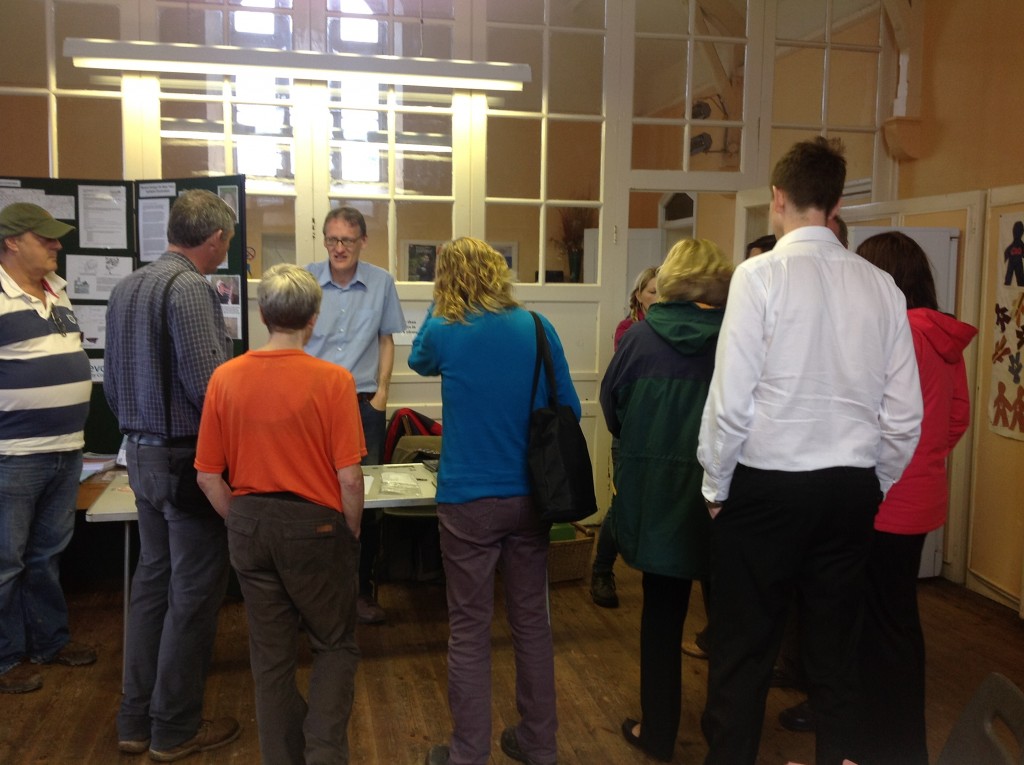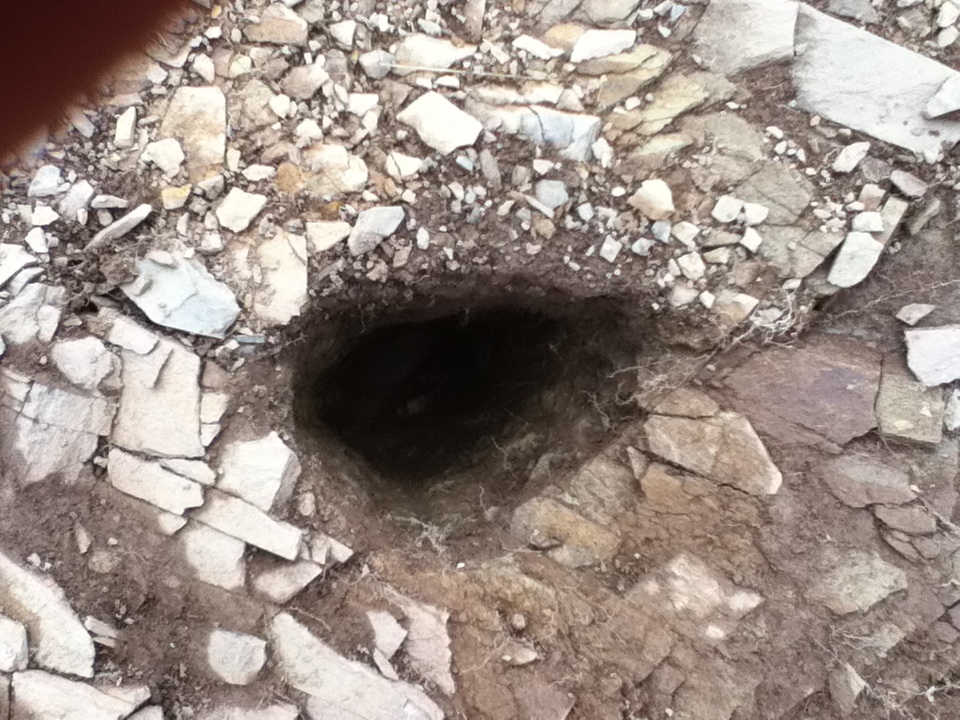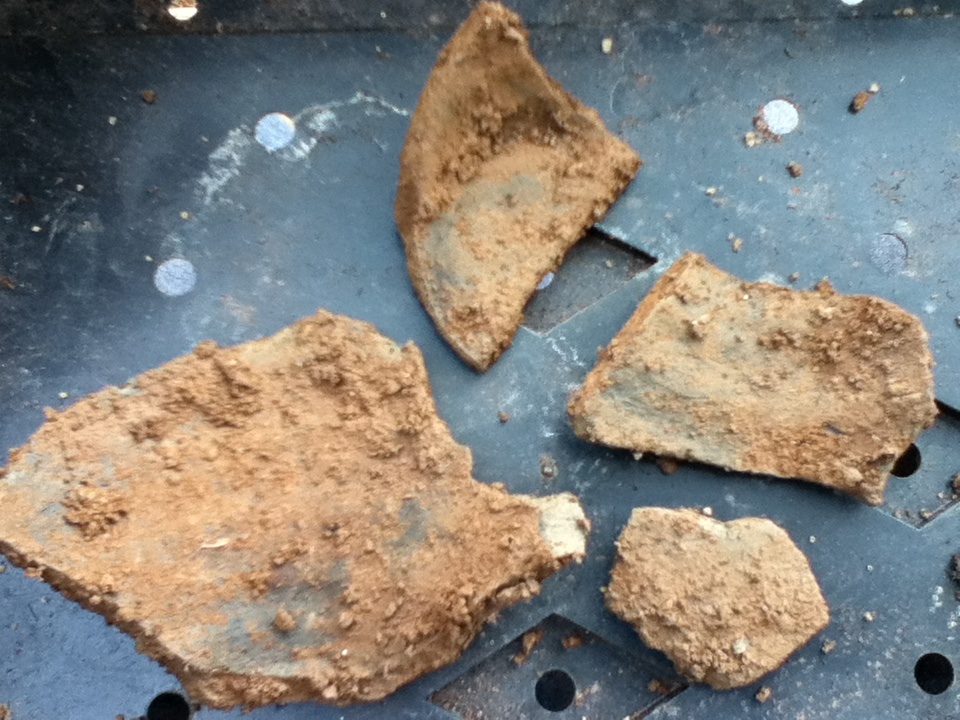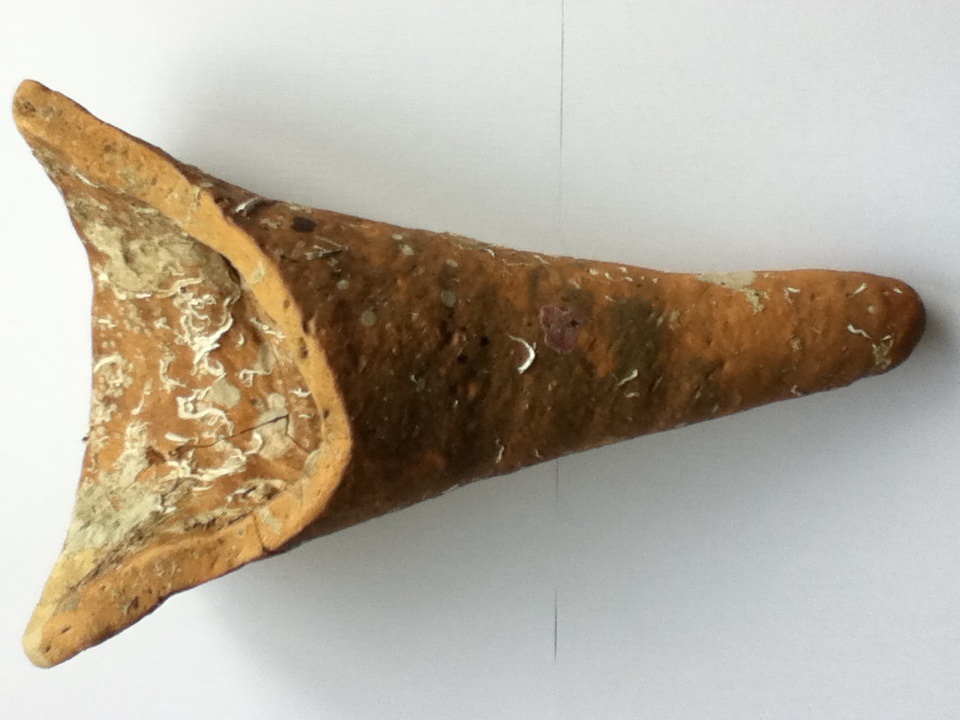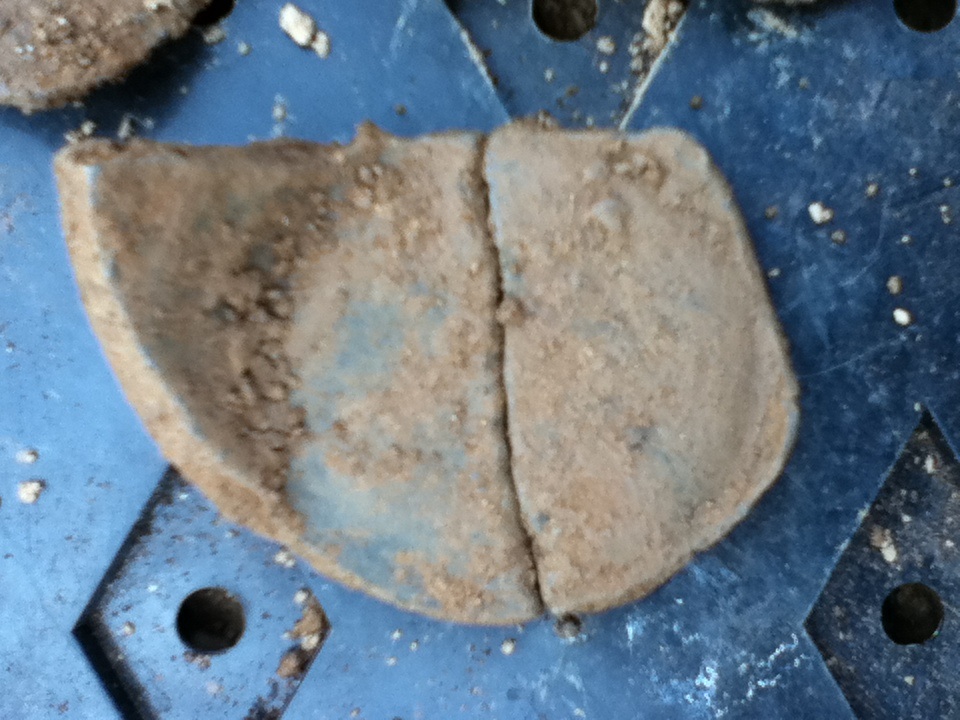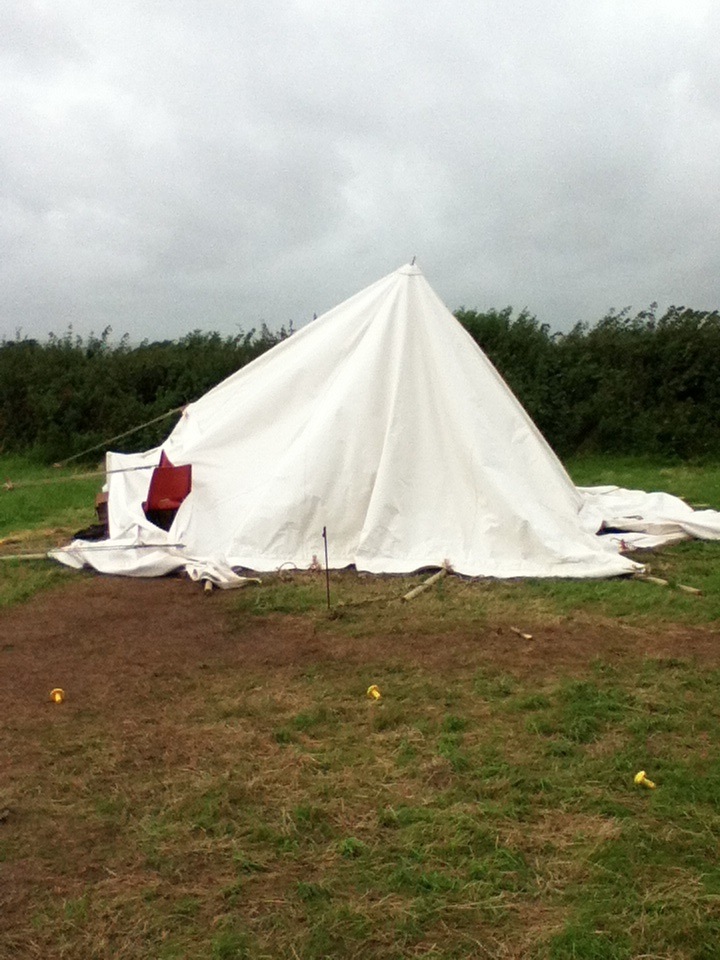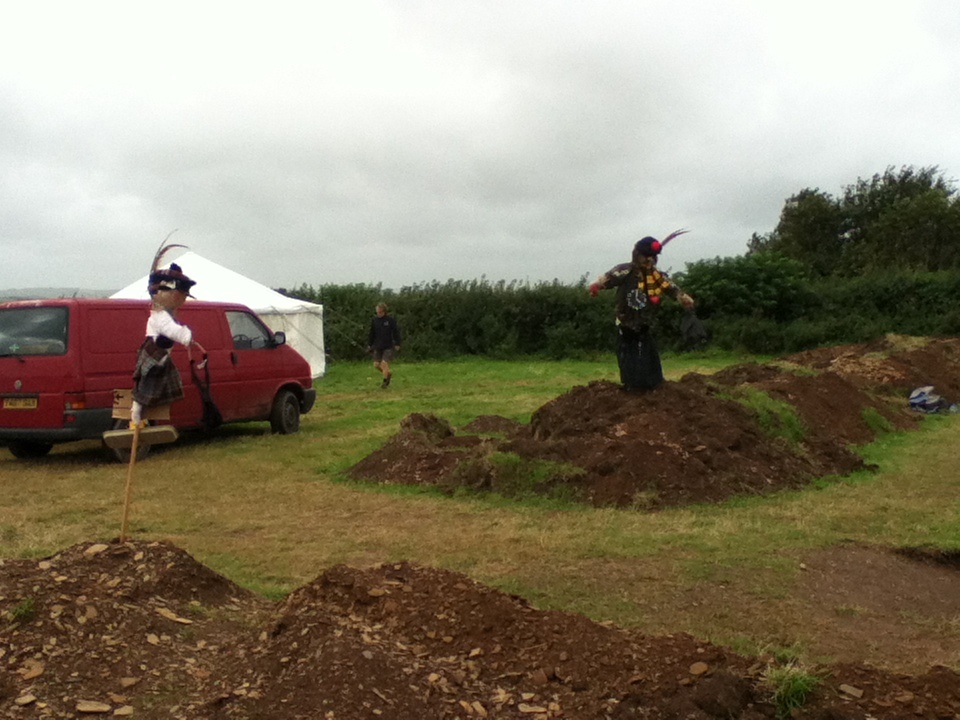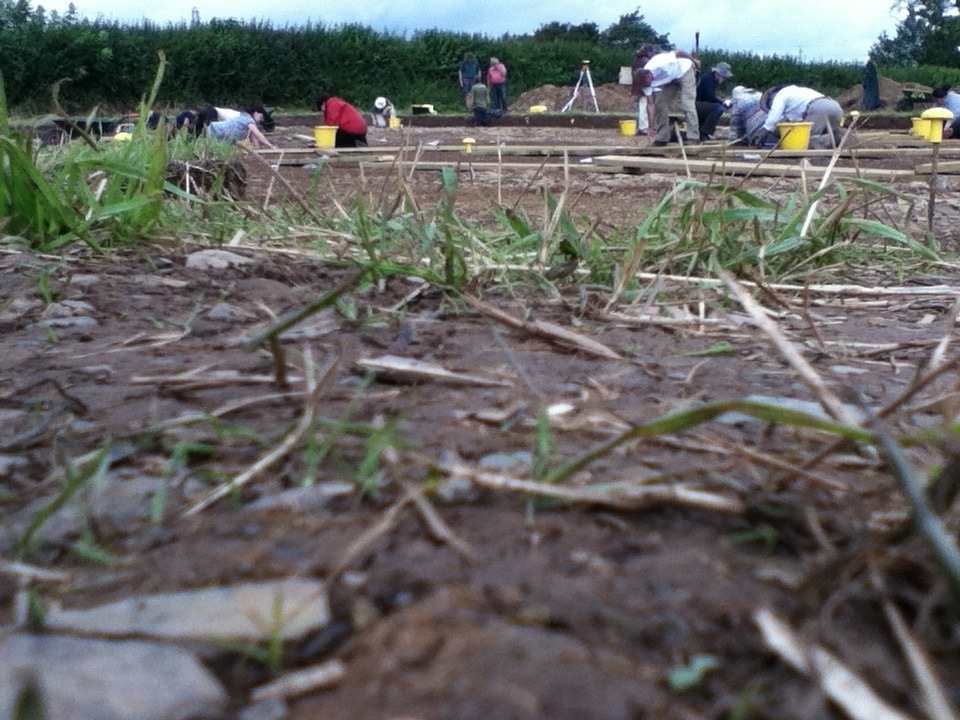Today the site was open to professionals and local councillors. It was a busy day both on site and at the information point at the Hub. This image shows Sam Moorhead (British Museum) discussing the significance of the site at the information point with local councillors and visitors. Student Matt did a great job today updating visitors on current progress at the excavation.
Author: Charlotte Young
A deep post hole
Gill discovers more Roman pottery
Amphora Spike discovered by local diver
Emily finds more Roman pottery
New find – pottery base
The winds finally conquer
What a scare!
Over 100 attend Sam Moorhead’s talk
On Tuesday 14th August 2012, Sam Moorhead, National Adviser for Iron Age and Roman Coins, gave a presentation on “Ipplepen- at the heart of “New Roman” Devon”. The talk was held at Ipplepen Village Hall and attended by more than 100 local villagers, students from the University of Exeter and Earthwatch volunteers.
Sam’s presentation provided an interesting insight into the distribution of Iron Age and Roman coins in Devon and Cornwall. Generally, very few Iron Age coins have been discovered in the SouthWest, with most finds occurring in SouthEast England and East Anglia. Therefore coin finds in the SouthWest are crucially important for filling in the gaps of the historical record collected so far.
Sam believes that Roman coin finds are connected with Roman military presence. The Roman Emperor Vespasian led the legion, Legio II Augusta to the Southwest. We already know of Roman presence at Exeter, however the Roman coin finds at Ipplepen suggests that the Romans occupied sites further west of Exeter than originally thought. The oldest Roman coin found in Devon to date is one discovered by Jim at the site in Ipplepen which dates to 117BC. Recent discoveries of Roman coins in the SouthWest suggests that there were significant trade activities taking place. Roman coins discovered at Ipplepen also date to the reigns of Nero, Domitian, Faustina II and Septimius Severus. Third Century radiate coins of Barborous and Diocletian have also been found at Ipplepen, with the latest coins dating to the time of Constantius II and Valentinian. The most common periods of the coins found at Ipplepen belong to the periods of Vespasian and his son, Domitian.
Sam presented some interesting ideas to the audience about what the coin finds of Ipplepen and in the region signify, such as the exploitation of Britain to feed the armies in the Rhineland during the late Roman period. Questions asked by local villagers concerned the location of the excavation, the structures found at the site, the size of the excavation area and the discovery of Roman roads. We would like to take this opportunity to thank all who attended the talk on Tuesday evening, and a great thank you to Sam Moorhead for presenting a fascinating talk on the SouthWest and it’s ancient coinage.
